<< Previous | Displaying results 291-300 of 6769 for "" | Next >>
Jenine was the younger of two daughters born to Jewish parents. They lived in a small city with a large Jewish population in central Moldavia. Her father, a veteran of World War I, came from a large family and Jenine had more than 15 aunts and uncles, all living in Bacau. This extended family helped raise Jenine and her sister Sofia while their parents ran a grocery store. 1933-39: Just like every child her age, Jenine belonged to a national youth organization headed by Prince Michael. They wore special…
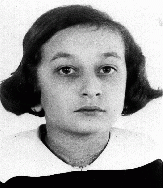
Paul was one of three children born to Jewish parents. They lived in a small city with a large Jewish population in central Moldavia. Paul's Ukrainian-born father had been stationed in Romania during World War I, and chose to remain there rather than return to Ukraine after the 1917 Russian Revolution. 1933-39: Paul's household observed the Jewish holidays. He loved Passover with its special meals and the opportunity to show off new clothes. On the radio his family heard about the Nazis in Germany; in…
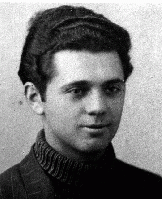
Matvey was the youngest of three children born to a Jewish family. The Gredingers lived in the town of Vertujeni, which was located in Bessarabia, a region of Romania. His father was a kosher butcher, preparing meat, especially chicken, for sale in his kosher shop. Matvey attended a Jewish school where he studied Jewish history and Hebrew. 1933-39: The Gredingers heard stories from other towns about antisemitic groups, especially the League of National Christian Defense, harassing and sometimes attacking…
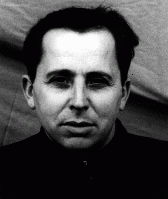
Eva was one of three children born to Jewish parents in Vertujeni, a Bessarabian town that was 90 percent Jewish. Eva attended a public school. Her family was religious, attending synagogue every day. Eva's father made his living as a kosher butcher, preparing chicken according to Jewish dietary laws. 1933-39: In 1936, when Eva was 15 years old, her family moved to Vysoka, where she later got a job as a seamstress. Vysoka was very different from her hometown. There were only about 15 Jewish families in…
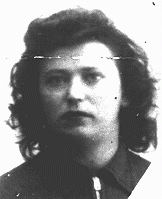
Edith's village of Kriesciatik was located on the border between Romania and Poland. Her Jewish parents owned a large ranch where they raised cattle and grew sugar beets. They also owned a grocery store. Edith had a brother, Jacob, and a sister, Martha. At home the family spoke Yiddish and German, and Edith learned Romanian after she began school. 1933-39: Edith's village was by a river, and she spent summer days by the water with her friends, swimming and playing. Her mother would pack her bread and…
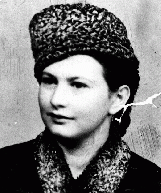
Max was raised in the Romanian town of Radauti, a trading and woodworking center near the Ukrainian border. The Gutmanns had a traditional Jewish home, and Max's father was on the board of directors of the local Jewish community. Max's father dealt in grain, feed, and livestock and he was a purveyor of horses for the Romanian military. 1933-39: Max's pony, Lisa, was kept in his family's stables with the other horses. The secondary school he attended was semi-private; it was governed by the state, but each…
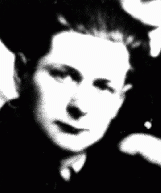
Erika was born in Znojmo, a town in the Czech region of Moravia with a Jewish community dating back to the 13th century. Her father was a respected attorney and an ardent Zionist who hoped to immigrate with his family to Palestine. In 1931 the Neumans moved to Stanesti, a town in the Romanian province of Bukovina, where Erika's paternal grandparents lived. 1933–39: In Stanesti, Erika attended the public school as well as the Hebrew school, which her father had helped to found. She loved to play with her…
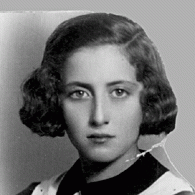
Maria was born to a poor family in the industrial town of Jaworzno, not far from Krakow, in southwestern Poland. Both of Maria's parents worked. Like her parents, Maria was baptized in the Roman Catholic faith. 1933-39: Maria took care of the house when her parents were working. She was 11 years old when the Germans invaded Poland on September 1, 1939. German troops reached Jaworzno that same month. Jaworzno was in an area of Poland that became formally annexed to Germany. 1940-44: The Germans arrested…
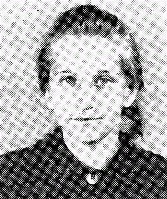
Janusz was the eldest of four children born to Catholic parents in Plock, a town located in a rural area north of Warsaw. His father was an accountant. Janusz attended local schools, and became active in scouting. 1933-39: Janusz went to Warsaw to study civil engineering. On September 1, 1939, the Germans began bombing Warsaw. One week later, all able-bodied men who had not been mobilized were directed to retreat east. On September 17, Janusz was 90 miles from the Romanian border. That night, the Soviets…
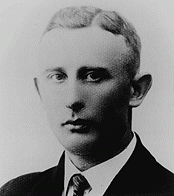
Wladyslaw was born to Catholic parents in Russian-occupied Poland. He grew up in Plock, a town located in a rural area north of Warsaw. Wladyslaw married in 1918 and he and his wife, Marie, raised four children. 1933-39: Wladyslaw worked as a bookkeeper, and then as an accountant for a local farmers' cooperative. In 1931 he was sent to the town of Wyszogrod to close a failing branch of the farmers cooperative. A year later, he organized a new, successful cooperative in Wyszogrod with local farmers and…
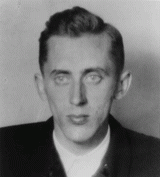
We would like to thank Crown Family Philanthropies, Abe and Ida Cooper Foundation, the Claims Conference, EVZ, and BMF for supporting the ongoing work to create content and resources for the Holocaust Encyclopedia. View the list of donor acknowledgement.